Big changes are coming to the Cypher System! You can learn more here—and sign up to be among the first to get advance information and details (and be notified when the campaign launches). In this series of design diaries, Monte talks about the changes we’re making and why we’re making them.
When you drive a car and something doesn’t work precisely the way you think it should, you notice. Maybe you ignore it, maybe you take it into a shop. If you’re a car mechanic, though, you not only notice, you probably know just how to fix it.
That’s what it’s like to play a game as a game designer. It’s maybe even worse. Because while a car does many things, you’re probably not constantly trying to do new things with it all the time. As a creative enterprise, playing an RPG means coming up with new situations, which typically challenge not only the people around the table, but also the game system itself. It’s not the goal to constantly try to break the system, but nevertheless, that’s sort of what you end up doing.
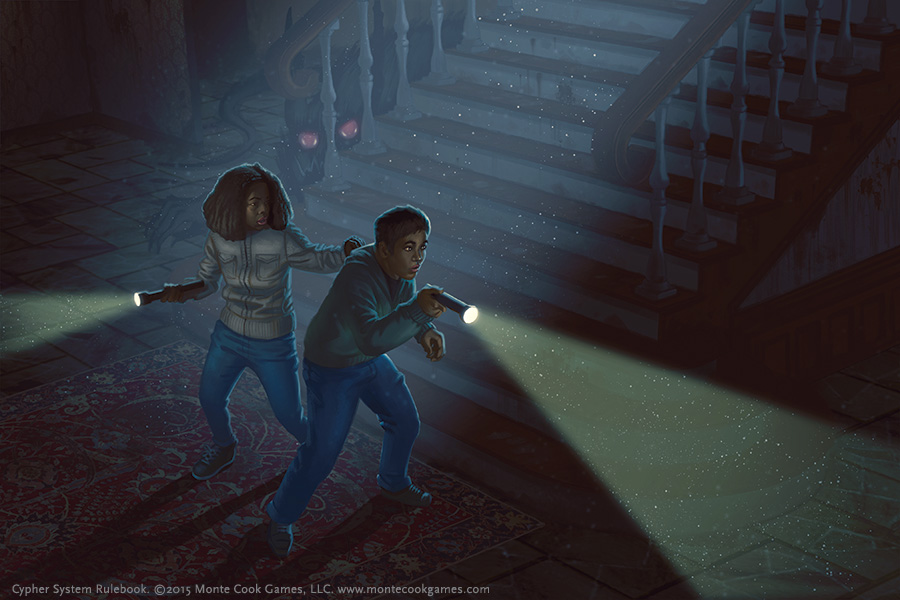
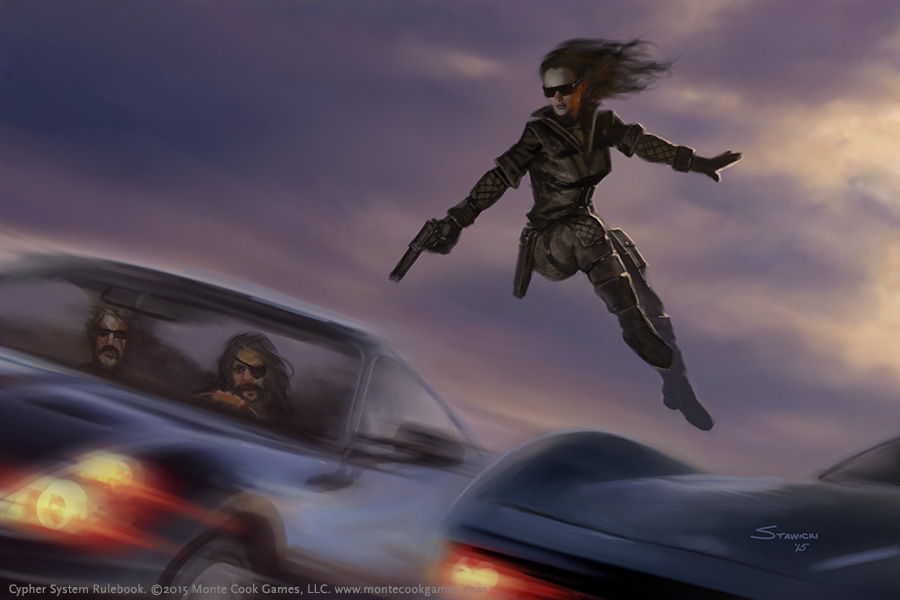
I’ve been playing the Cypher System for longer than anyone, and the other designers at MCG have been using the system thoroughly as well. In our own games, we’ve smoothed the rough edges. We’ve created new ways of doing things that improve the play experience. It’s not a matter of things in the game having been bad, it’s just that new inspirations come along to make things better.
That said, years and years of play also showcase what there is to love about a system. You see the things about a game that you’ve been playing that you’d never change. You see them as hills you’re willing to die on.
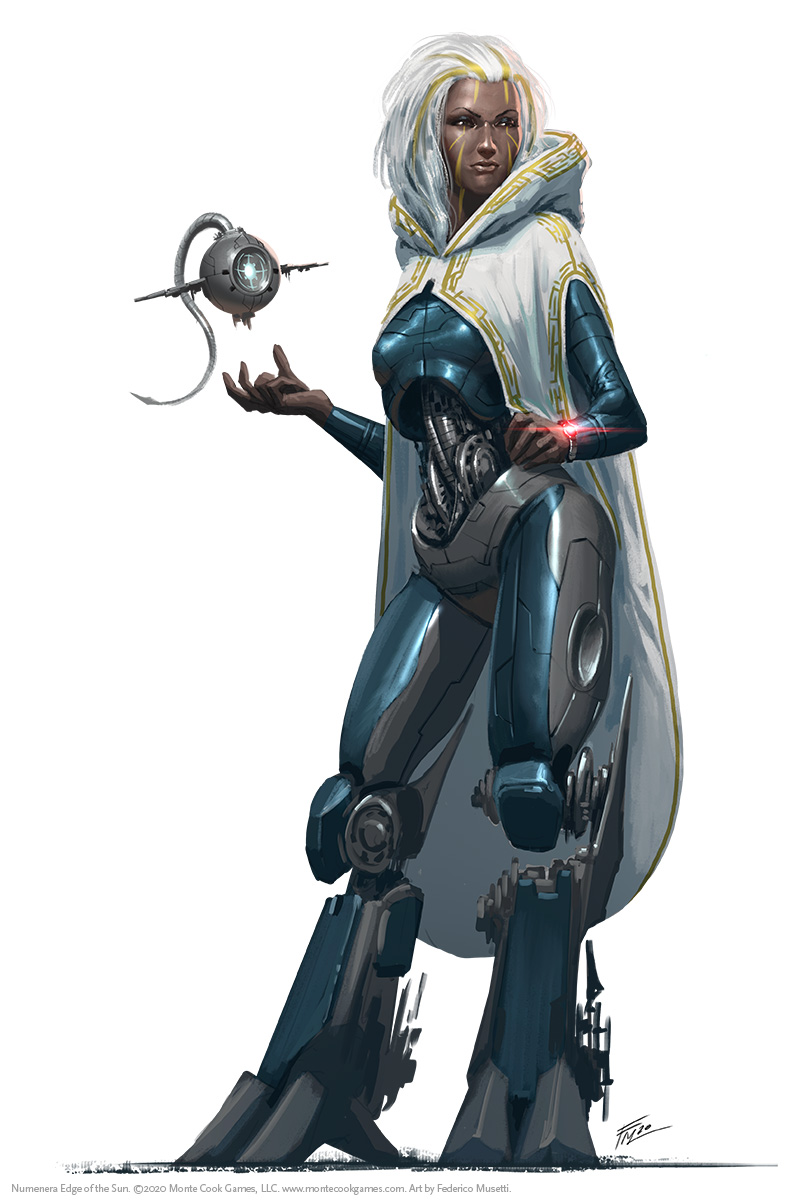
Cypher started as Numenera. When I saw that the rules could be extended to other genres and settings, I set out to trim away the elements that made it specifically for the Ninth World setting, and created a sort of toolbox for GMs to tailor the rules to any setting. It was still the same game, but it appealed to those who wanted to tinker and hack the rules to make it what they wanted. That was the original Cypher System Rulebook.
That focus on tinkering, of using the Cypher System to build the game you wanted to play, is a fine goal, but plenty of GMs and players just want a game playable without a lot of extra work. A game that didn’t just suggest how you might take a general type of character and make it a starship pilot, a druid, or a swashbuckler, but one that just gave you a starship pilot, a druid, and a swashbuckler (and lots more). However, one of the core conceits of the Cypher System that absolutely couldn’t change was the customization that allowed you to play exactly the character you wanted. Not just a starship pilot, but one that was always coming up with cunning schemes and secretly had psionic abilities: a crafty starship pilot who commanded mental powers. Not just a druid, but one that excelled at getting what they wanted and could call upon the powers of the earth to give him tough, rocky flesh: a charming druid who abided in stone. And not just a swashbuckler, but a surprisingly brainy individual who learned to wield a rapier and a dagger at the same time: an intelligent swashbuckler who wields two weapons.
As the design team and I tinker, one of the other main ingredients of the game’s design that we all agree just shouldn’t change is the ease of creating and running NPCs of any kind, from intelligent folks to ravenous beasts (or something in between). Fans of the Cypher System seem to agree that it is a very easy game to run, whether with lots of prep or very little (or no) prep. A nice effect of keeping this aspect of the game unchanged is that, even with the improvements we’re bringing to the core game, all previous adventures and sourcebooks will remain compatible. For Cypher fans, this is good news because we’ve produced a lot of great adventures and sourcebooks over the years.
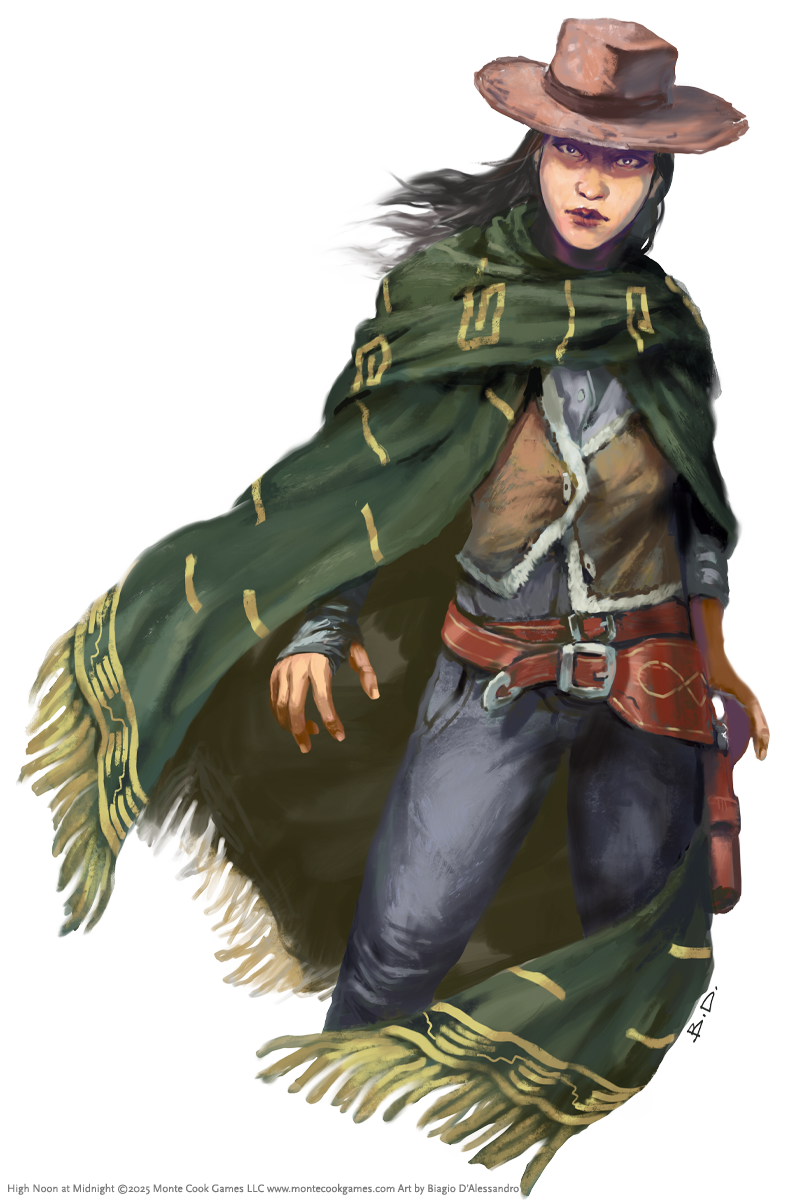
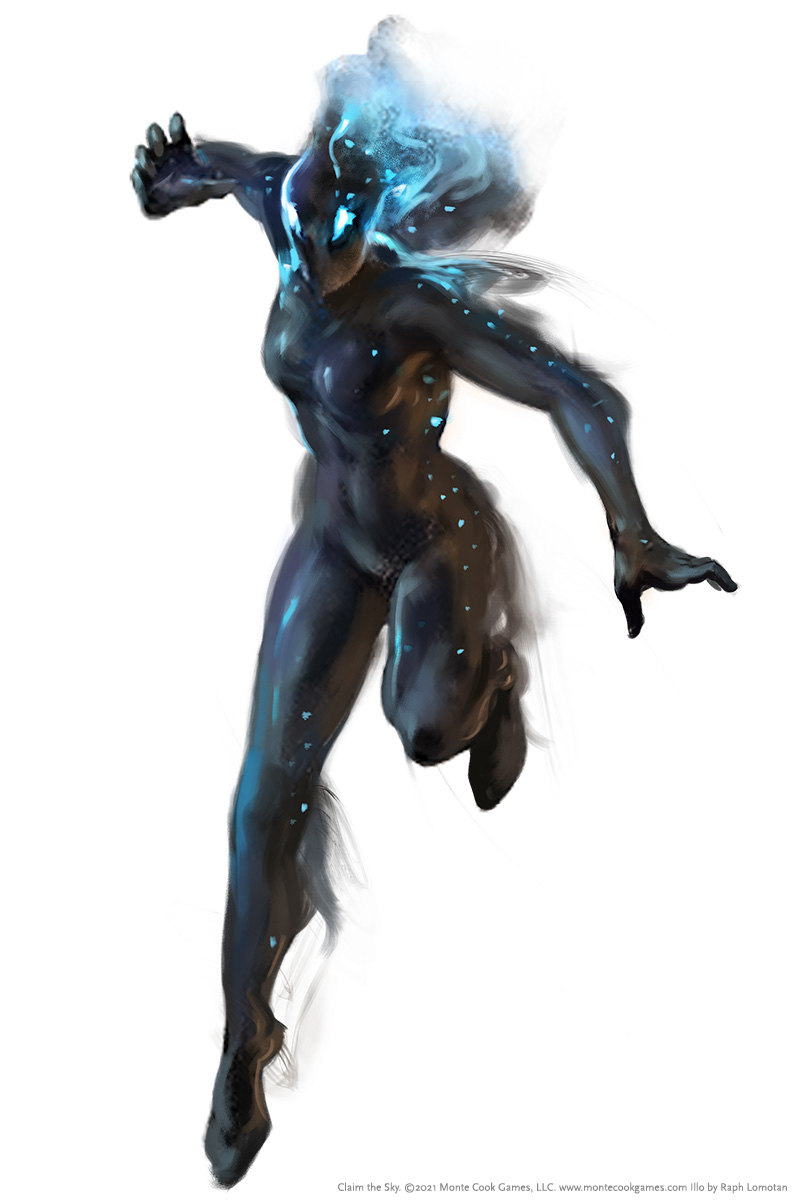
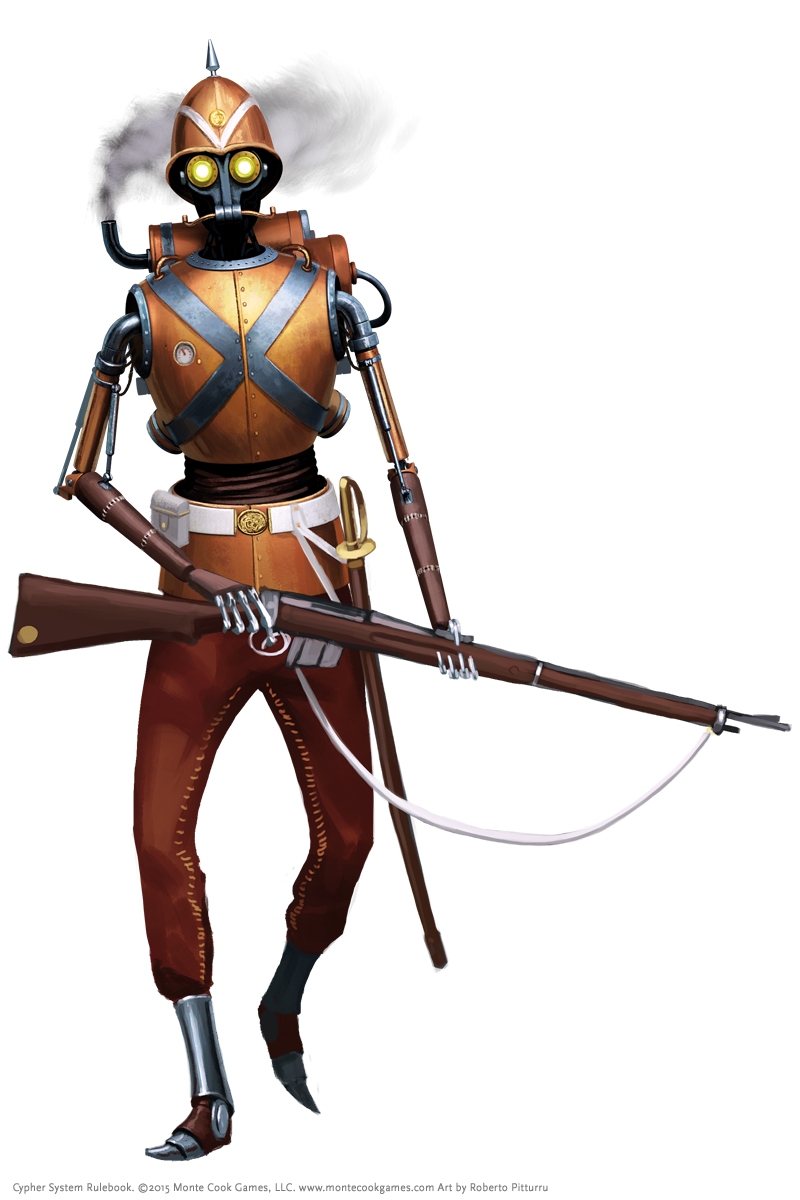
We’ve been experimenting with the Cypher System for literal years behind the scenes. Some of our experiments have manifested as optional rules in sourcebooks like Claim the Sky, Godforsaken, and Neon Rain. Others have emerged in related, standalone games like Old Gods of Appalachia Roleplaying Game and The Magnus Archives Roleplaying Game. Others have yet to see the light of day, but we’ve been having fun with them ourselves for a while. We’re anxious for you to see them.
You’ll see these changes in print in mid-2026—a year or so from now. But over the coming weeks, I’m going to be writing a number of articles discussing some of the specifics we’ve changed and not changed—and more importantly, why. As you’ll see, many of them come as a result of feedback we’ve had from others playing the game. Exciting times!
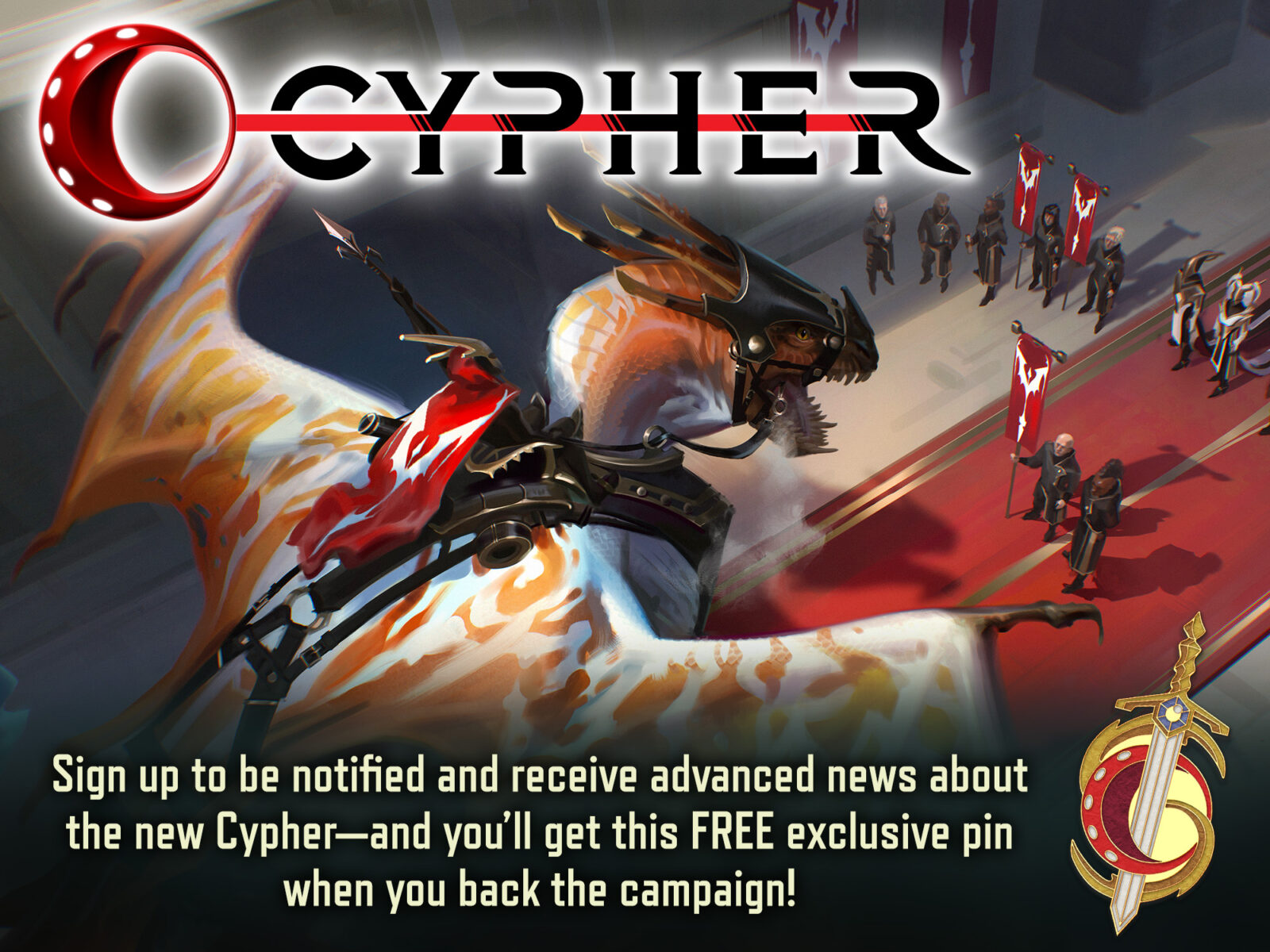
Sign up and be among the first to get advance information and details about the new edition of Cypher (and be notified when the campaign launches).
If you love game design, you might also be interested in Monte’s Substack, RPG Design Theories!